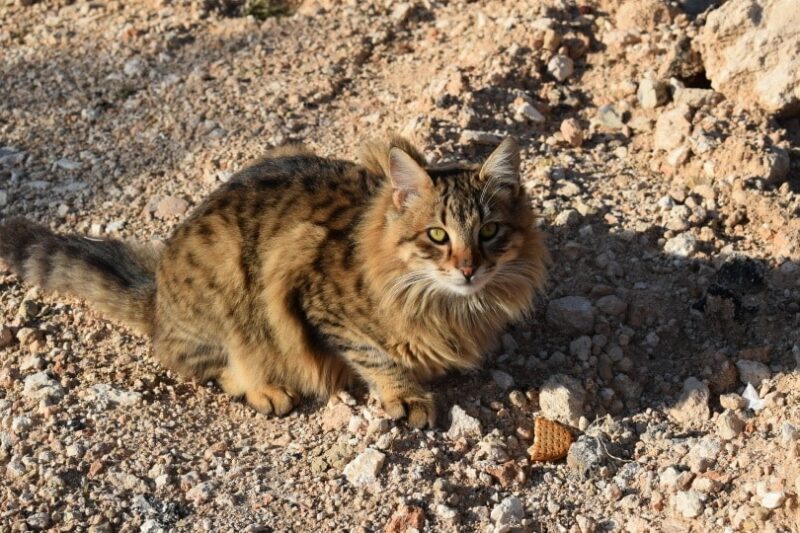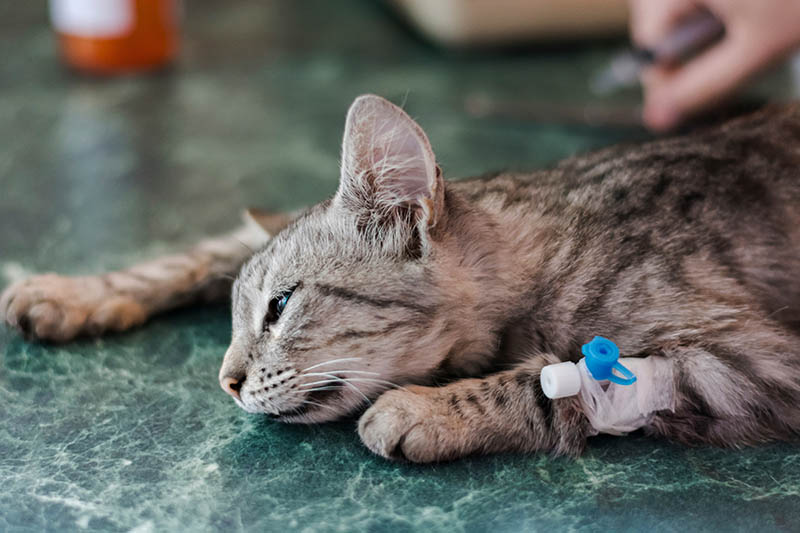Will a Cat Keep Roaches Away? Vet-Reviewed Facts & FAQ
Updated on
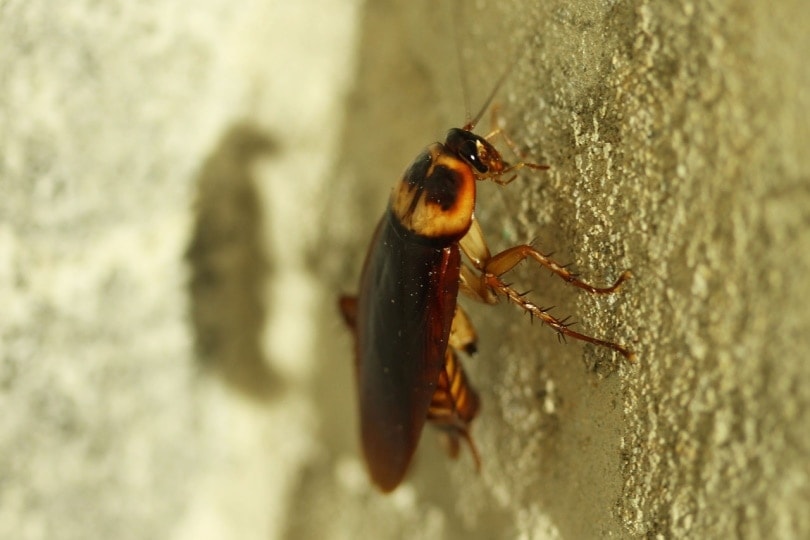
Cats have a reputation as excellent mousers, and they’ve been used for centuries to help control the pest population in homes and food storage areas. If you’ve ever seen a cat around insects, you may know that they enjoy the hunt, the attack — and the possible ingestion. But if you’re worried about cockroaches, you might be wondering if your cat can keep them away.
While your cat might help remove a few roaches, they won’t be a deterrent, and they can’t help if you have an infestation.
Here, we get into whether it’s safe for cats to eat cockroaches and a few steps that you can take to keep the roaches away from your cat and house.
Do Cats Hunt and Eat Cockroaches?
This depends on the cat. There are cats that are more interested in playing with roaches than eating them, and such cats might not help keep the roach population down enough.
Cats have strong hunting instincts that drive them to hunt prey, even if they are regularly fed. Domestic cats are skilled hunters whose instincts are triggered by movement. Anyone who knows cats will know how silent and stealthy they can be. Most cockroaches won’t even know that they’re being stalked.
So, yes, cats can hunt cockroaches and might even eat them when they’re through playing with them.
Why Do Cats Toy With Their Prey?
It’s believed that cats toy with their prey before killing it in order to protect themselves. As effective as they are as hunters and killers, cats can easily be injured while hunting, so they will play with their prey to tire it out and make it easier to kill and eat it. It’s been found that the more dangerous the prey, the longer the cat will toy with it. It’s all about self-preservation.
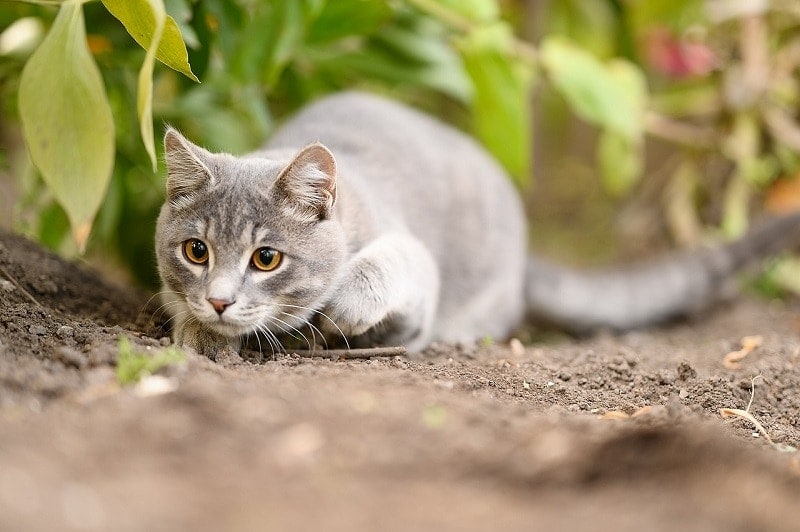
Can Cats Keep Roaches Away?
Cats can be effective at keeping pests like mice and rats away, but does that include cockroaches? One study found that a farm with cats remained free from pests, while a neighboring farm that did not have cats still had an issue with pests. The rats and mice learned to stay away from the farm with the cat, but can the same be said about insects?
There is a possibility that roaches might be deterred with a roach-hunting cat in the house, but if there’s an infestation, having a cat won’t make any real difference. Some roaches might just become sneakier about making an appearance.
Are Cockroaches Safe for Your Cat to Eat?
Insects are a high source of protein, and there’s even cat food available that’s made with ground-up insects. However, these foods are not made with cockroaches, but most commonly with black soldier fly larvae and crickets.
There are a few issues with cats regularly eating cockroaches. It’s usually fine if your cat eats just a couple of roaches (ones that weren’t subjected to poison), but there are certain hazards if they become a regular part of your cat’s diet.
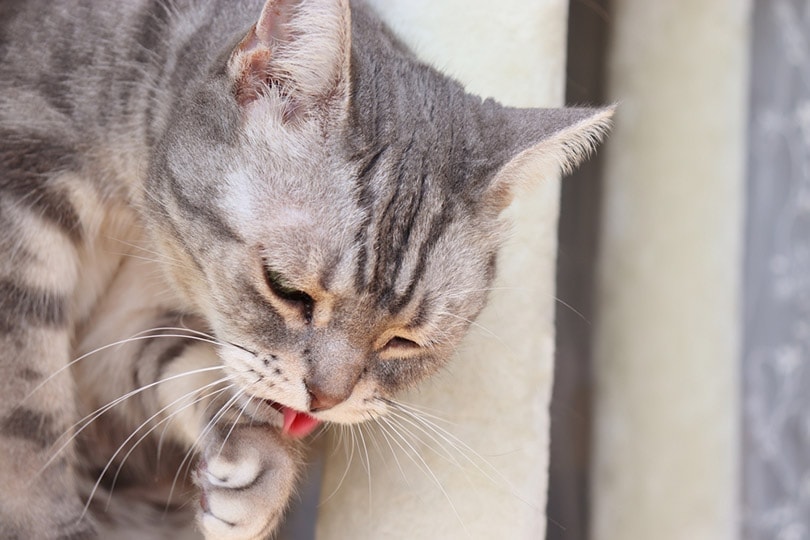
1. Poison
Since cockroaches are considered pests, they are commonly subjected to pesticides and other poisons. If a cat eats a contaminated cockroach, it can potentially make them sick. Cats with a health condition or kittens or seniors are more likely to fall ill and will likely need to see the vet.
If you’ve been using pesticides in your home, this can result in insecticide toxicity in your cat. The symptoms can include:
- Vomiting
- Diarrhea
- Seizures
- Excessive drooling
- Difficulty walking
- Trouble breathing
Take your cat to the vet immediately if you notice these symptoms after having your house treated with pesticides.
2. Choking
Cockroaches have hard exoskeletons that can be a choking hazard. The shells are difficult to chew and can potentially get stuck or cause injury to a cat’s throat. The larger the roach, the more likely it can cause a blockage in their throat. A cat’s teeth aren’t capable of grinding the shell down until it’s safe to swallow.
- Gagging and retching
- Lack of appetite
- Excessive drooling
- Constant gulping
- Lack of appetite
- Low energy
- Trouble swallowing and breathing
Take your cat to the vet if any of these symptoms occur.
3. Indigestible
A cockroach’s hard exoskeleton is not only difficult for cats to chew, but it’s also difficult to digest. If cats eat something indigestible, they usually throw it up or poop it out.
But if the pieces are big, they can potentially cause a blockage in the gastrointestinal tract. This can create a serious health problem that might need surgery to fix.
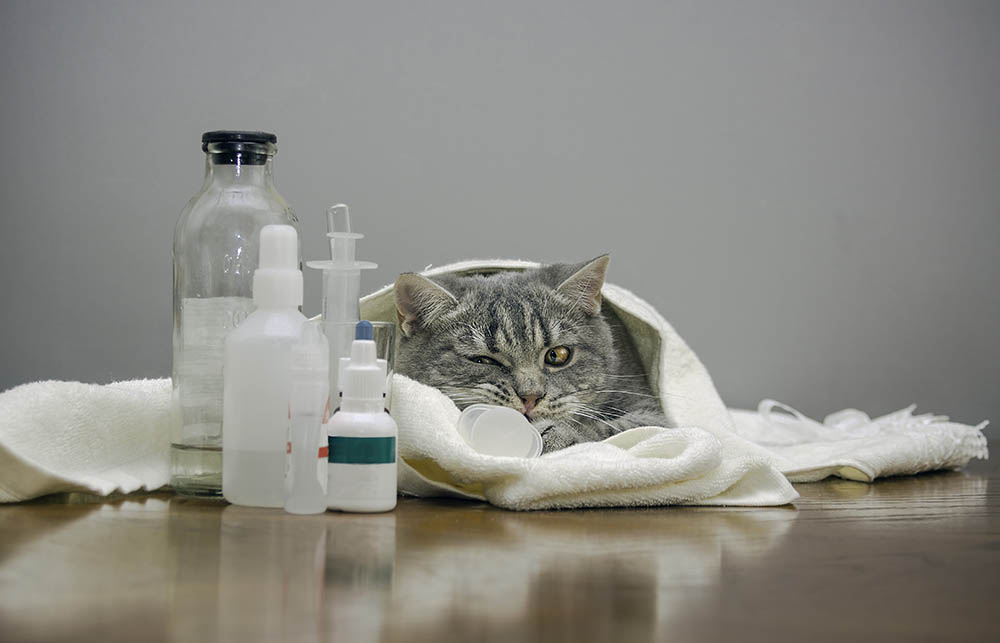
4. Bacteria and parasites
Cockroaches can carry diseases, which is another potential reason that cats might become ill after eating them. Roaches clean themselves like most insects, but they also spend time rooting through garbage, compost, feces, etc. With bacteria lingering on the body of the roach, your cat is also ingesting trace amounts of these gross things. One study found that cockroaches also carry a host of parasites, with hookworms being the most common.
Hookworms can be dangerous, particularly for kittens, and the symptoms in cats are:
- Coughing
- Tarry and dark stool
- Diarrhea
- Constipation
- Lack of appetite
- Lethargic
- Death if not treated
There’s no guarantee your cat will suffer from any of these issues after eating a cockroach or two, but it’s better to be safe than sorry.
Keeping Roaches Away From Your Cat and Home
If you’re not comfortable using insecticides in your home, there are a few steps that you can take to make it more difficult for roaches to get into your house.
- Keep the house clean, even in areas that aren’t used often.
- Don’t keep any food out; try to put any foodstuffs in containers.
- Seal any cracks, crevices, and holes around your home or anywhere roaches might get inside.
- Remove clutter where roaches may hide.
- Avoid leaving your cat’s food out, especially overnight, as this can draw roaches.
- Use cat litter that cockroaches can’t eat, which means avoiding biodegradable litter. Clay or silica gel can work. Otherwise, keep the litter as clean as possible.
Final Thoughts
It’s best if you don’t use your cat to hunt and kill cockroaches. There’s always the risk that your cat might become ill if they ingest the roach, and even if it doesn’t happen, it’s better not to take the chance. There are natural deterrents that you can try out, ones that won’t cause any harm to your family, including your cat.
What draws cockroaches to your home is food and shelter. If you find a way to take both these elements away from them, you can avoid hosting these nasty houseguests.
Featured Image Credit: 1113990, Pixabay

